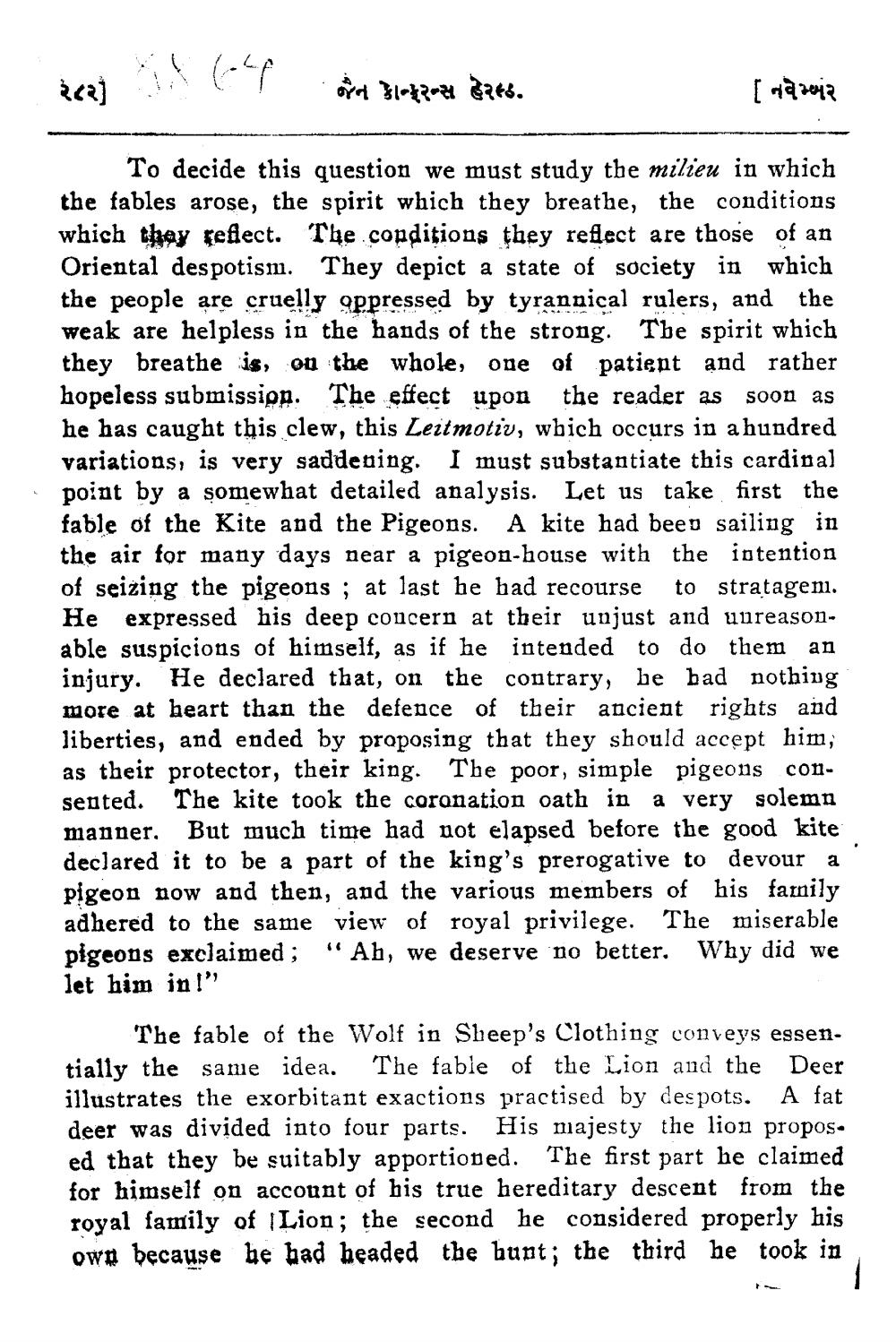________________
(
7
Blox3-22 2745.
[na seja
To decide this question we must study the milieu in which the fables arose, the spirit which they breathe, the conditions which they reflect. The conditions they reflect are those of an Oriental despotism. They depict a state of society in which the people are cruelly oppressed by tyrannical rulers, and the weak are helpless in the hands of the strong. Tbe spirit which they breathe is, on the whole, one of patient and rather hopeless submission. The effect upon the reader as soon as he has caught this clew, this Leitmotiv, wbich occurs in a hundred variations, is very saddening. I must substantiate this cardinal point by a somewhat detailed analysis. Let us take first the fable of the Kite and the Pigeons. A kite had been sailing in the air for many days near a pigeon-house with the intention of seizing the pigeons ; at last he had recourse to stratagem. He expressed his deep concern at their unjust and unreason. able suspicions of himself, as if he intended to do them an injury. He declared that, on the contrary, be bad nothivg more at heart than the defence of their ancient rights and liberties, and ended by proposing that they should accept him, as their protector, their king. The poor, simple pigeons consented. The kite took the coronation oath in a very solemn manner. But much time had not elapsed before the good kite declared it to be a part of the king's prerogative to devour a pigeon now and then, and the various members of his family adhered to the same view of royal privilege. The miserable pigeons exclaimed; “Ah, we deserve no better. Why did we let him in!"
The fable of the Wolf in Sheep's Clothing conveys essen. tially the same idea. The fable of the Lion and the Deer illustrates the exorbitant exactions practised by despots. A fat deer was divided into four parts. His majesty the lion propose ed that they be suitably apportioned. The first part he claimed for himself on account of his true hereditary descent from the royal family of Lion; the second he considered properly his own because he had headed the bunt; the third he took in




